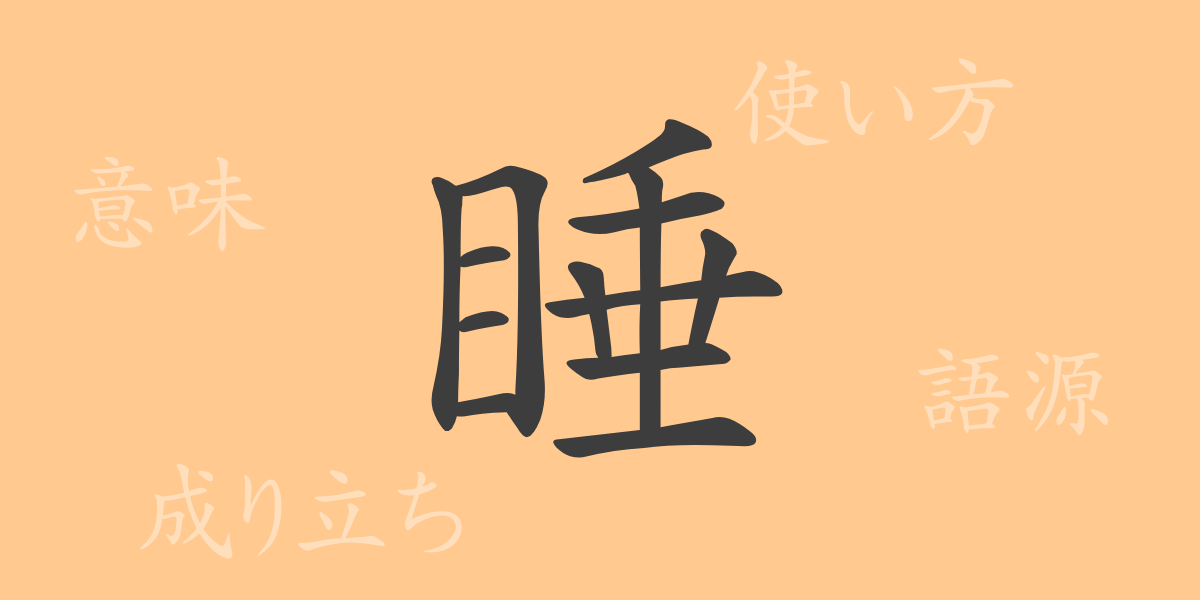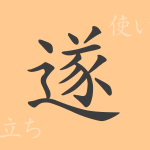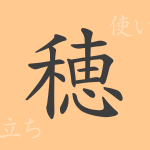Japanese characters, known for their beauty and complexity, each hold profound meanings and histories that shape Japan’s culture. This article focuses on the kanji ‘睡’ (すい), a commonly used character deeply intertwined with our daily lives. We will explore the origins, meanings, usages, and the phrases that incorporate ‘睡’, diving deep into the world of this character.
Origins of 睡
The kanji ‘睡’ originates from ancient China and was formed to depict the act of sleeping. The upper part of the character includes ‘目’ (め), meaning ‘eye’, while the lower part combines with ‘垂’ (すい), which means ‘to droop’, such as drooling in one’s sleep, illustrating the depth of slumber. This structure of ‘睡’ beautifully symbolizes elements related to sleep.
Meaning and Usage of 睡
‘睡’ primarily means ‘to sleep’. It is frequently used in everyday conversation and literature to describe the state of sleeping or appearing sleepy. This kanji is most commonly seen in the word ‘睡眠’ (sleep), emphasizing its relevance in discussions about health and lifestyle. Expressions like ‘安らかな睡眠’ (peaceful sleep) use ‘睡’ to denote serene and restful sleep.
Readings, Stroke Count, and Radical of 睡
The kanji ‘睡’ has intriguing features from its readings to its structure:
- Readings: On’yomi ‘スイ’, there are no Kun’yomi readings.
- Stroke Count: 13 strokes.
- Radical: The radical is ‘目’, which relates to the eye, classifying it under kanji associated with vision.
Phrases and Idioms Using 睡
Several idioms and phrases incorporating ‘睡’ relate to sleep and rest:
- 安睡 (あんすい): Signifying peaceful sleep.
- 睡眠 (すいみん): Refers to sleep in general.
- 睡魔 (すいま): Personification of sleepiness, describing the sensation of being lured to sleep.
Conclusion on 睡
Every kanji has a rich history and significant meaning, and ‘睡’ is no exception, playing a crucial role in our lives. This article has provided insights into the etymology, meanings, and usages of ‘睡’, as well as idiomatic expressions that utilize this character. Sleep is an essential activity for humans, and ‘睡’ symbolizes its importance. Encountering ‘睡’ in daily life reminds us of its profound implications and the value of healthy sleep habits.

























